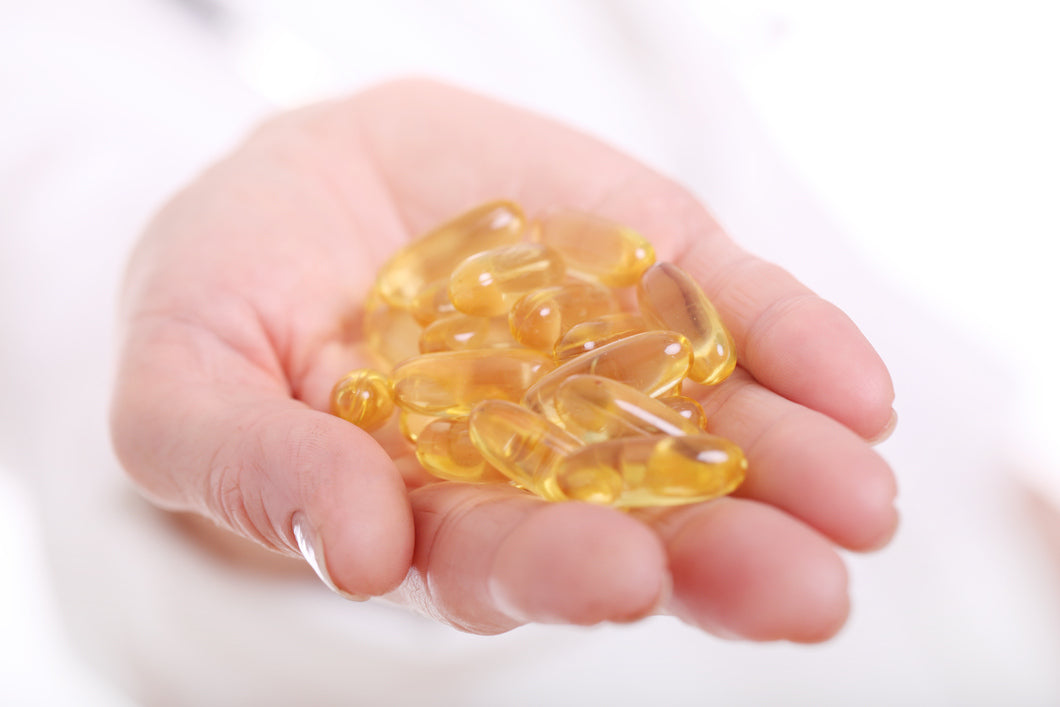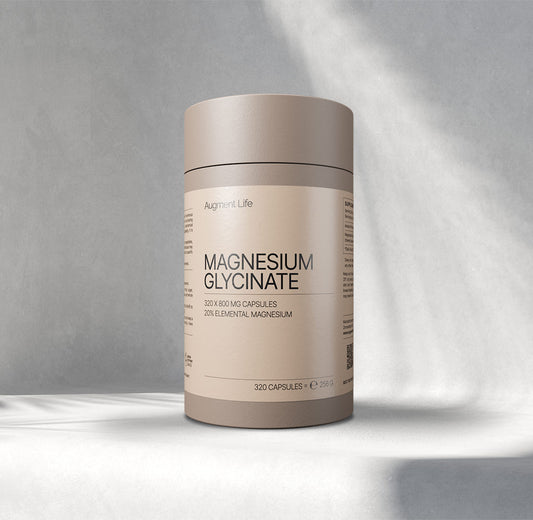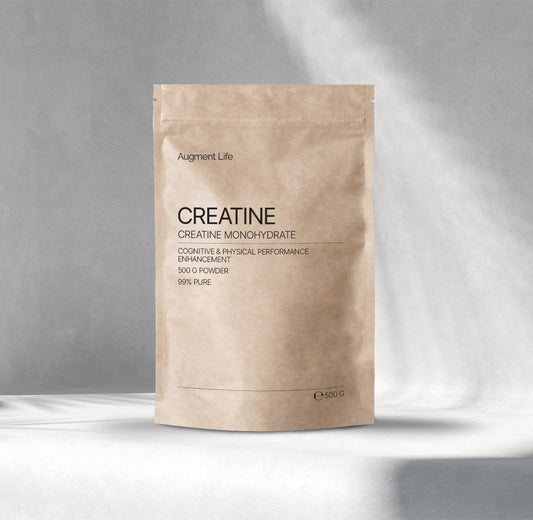Collagen, the most abundant protein in our bodies, plays a vital role in maintaining skin elasticity, joint health, and overall well-being. As collagen supplements gain popularity, the question arises: How much collagen should I take?
In this article, we'll explore the factors influencing collagen intake and provide insights into finding the optimal dosage for your unique needs.
Recommended Dosages of Collagen
General Health
While individual needs vary, a common recommendation for collagen supplementation ranges from 2.5 to 15 grams per day. Starting with a lower dose and gradually increasing allows you to monitor how your body responds.1
Individual Factors
It is important to note that age and lifestyle factors impact collagen needs.2
As we age, our collagen production takes a noticeable dip, especially for women, who may experience a faster decline during and after menopause. Factors like UV light and pollution can also contribute to collagen damage, leading to premature wrinkles.
If you're engaged in physical activities or sports involving running or jumping, the stress on your joints, bones, tendons, and ligaments increases. These movements can exert forces equivalent to 7 times your body weight on your joints and tendons, putting them under substantial pressure.
With this, for individuals with active lifestyles or those showing signs of aging, a higher intake of collagen is recommended to address these specific needs.
Tailored to Your Health Goals
Your health objectives influence the ideal collagen dosage. Whether you're aiming to improve skin elasticity, support joint health, or promote overall vitality, tailoring your collagen intake to specific goals is key.
Type of Collagen
Collagen supplements come in various types, which is why it is important to understand each of them to better guide your choice and dosage to take.
Hydrolyzed collagen
Hydrogen collagen is a widely utilized form in supplements due to its enhanced absorption compared to other types. It is commonly available in capsule or powder form, with the powder being very versatile.4
One review suggests that a daily intake of 2.5–15 grams of hydrolyzed collagen peptides is considered safe and effective.5 On the other hand, a smaller daily dose of 2.5 grams may offer benefits for joint pain, skin health, and hydration.6-8
Increasing the daily dosage to 5 grams shows potential in improving bone density,9-10 while larger daily doses of 15 grams have been primarily associated with enhancing muscle mass and body composition.11-12
Undenatured collagen
Undenatured collagen, in doses ranging from 10 to 40 mg per day, has been suggested by some human studies to improve joint health.13-14
Gelatin
Although less commonly available as a supplement, gelatin can be incorporated into gelatinous desserts or added to sauces, soups, and smoothies for an extra collagen boost. Specific dosage recommendations for gelatin are not extensively researched, so it's advisable to refer to the serving size indicated on the package before using it as a supplement.
Before integrating collagen supplements into your daily routine, it’s advisable to seek advice from a healthcare professional. Their personalized guidance, considering factors like existing health conditions, dietary preferences, and potential interactions, can ensure a safe and tailored approach.
Final Words
The question of how much collagen one needs is a personalized journey that involves understanding individual factors such as age, lifestyle, and health goals. As a fundamental protein for skin, joints, and overall vitality, collagen deserves careful consideration in our wellness routines.
Consulting with healthcare professionals ensures that the journey toward optimal collagen consumption is both effective and aligned with individual health needs.
References:
- Choi, F., Sung, C., Juhasz, M., & Mesinkovska, N. A. (2019, January). Oral collagen Supplementation: A Systematic Review of Dermatological applications - JDDOnline - Journal of Drugs in Dermatology. JDDonline - Journal of Drugs in Dermatology. Retrieved February 12, 2024, from https://jddonline.com/articles/oral-collagen-supplementation-a-systematic-review-of-dermatological-applications-S1545961619P0009X/.
- Meakin, C., & Meakin, C. (2023, January 16). How Much Collagen Per Day: Find the Right Dose and When to Take it. Bluebird Provisions. https://bluebirdprovisions.co/blogs/news/how-much-collagen-per-day.
- León-López, A., Morales-Peñaloza, A., Martínez-Juárez, V. M., Vargas-Torres, A., Zeugolis, D. I., & Aguirre-Álvarez, G. (2019). Hydrolyzed Collagen-Sources and Applications. Molecules (Basel, Switzerland), 24(22), 4031. https://doi.org/10.3390/molecules24224031.
- Paul, C., Leser, S., & Oesser, S. (2019). Significant Amounts of Functional Collagen Peptides Can Be Incorporated in the Diet While Maintaining Indispensable Amino Acid Balance. Nutrients, 11(5), 1079. https://doi.org/10.3390/nu11051079.
- Bolke, L., Schlippe, G., Gerß, J., & Voss, W. (2019). A Collagen Supplement Improves Skin Hydration, Elasticity, Roughness, and Density: Results of a Randomized, Placebo-Controlled, Blind Study. Nutrients, 11(10), 2494. https://doi.org/10.3390/nu11102494.
- Proksch, E., Schunck, M., Zague, V., Segger, D., Degwert, J., & Oesser, S. (2014). Oral intake of specific bioactive collagen peptides reduces skin wrinkles and increases dermal matrix synthesis. Skin pharmacology and physiology, 27(3), 113–119. https://doi.org/10.1159/000355523.
- Schauss, A. G., Stenehjem, J., Park, J., Endres, J. R., & Clewell, A. (2012). Effect of the novel low molecular weight hydrolyzed chicken sternal cartilage extract, BioCell Collagen, on improving osteoarthritis-related symptoms: a randomized, double-blind, placebo-controlled trial. Journal of agricultural and food chemistry, 60(16), 4096–4101. https://doi.org/10.1021/jf205295u.
- Elam, M. L., Johnson, S. A., Hooshmand, S., Feresin, R. G., Payton, M. E., Gu, J., & Arjmandi, B. H. (2015). A calcium-collagen chelate dietary supplement attenuates bone loss in postmenopausal women with osteopenia: a randomized controlled trial. Journal of medicinal food, 18(3), 324–331. https://doi.org/10.1089/jmf.2014.0100.
- König, D., Oesser, S., Scharla, S., Zdzieblik, D., & Gollhofer, A. (2018). Specific Collagen Peptides Improve Bone Mineral Density and Bone Markers in Postmenopausal Women-A Randomized Controlled Study. Nutrients, 10(1), 97. https://doi.org/10.3390/nu10010097.
- Zdzieblik, D., Oesser, S., Baumstark, M. W., Gollhofer, A., & König, D. (2015). Collagen peptide supplementation in combination with resistance training improves body composition and increases muscle strength in elderly sarcopenic men: a randomised controlled trial. The British journal of nutrition, 114(8), 1237–1245. https://doi.org/10.1017/S0007114515002810.
- Zdzieblik, D., Oesser, S., Baumstark, M. W., Gollhofer, A., & König, D. (2015). Collagen peptide supplementation in combination with resistance training improves body composition and increases muscle strength in elderly sarcopenic men: a randomised controlled trial. The British journal of nutrition, 114(8), 1237–1245. https://doi.org/10.1017/S0007114515002810.
- Lugo, J. P., Saiyed, Z. M., Lau, F. C., Molina, J. P., Pakdaman, M. N., Shamie, A. N., & Udani, J. K. (2013). Undenatured type II collagen (UC-II®) for joint support: a randomized, double-blind, placebo-controlled study in healthy volunteers. Journal of the International Society of Sports Nutrition, 10(1), 48. https://doi.org/10.1186/1550-2783-10-48.
- Crowley, D. C., Lau, F. C., Sharma, P., Evans, M., Guthrie, N., Bagchi, M., Bagchi, D., Dey, D. K., & Raychaudhuri, S. P. (2009). Safety and efficacy of undenatured type II collagen in the treatment of osteoarthritis of the knee: a clinical trial. International journal of medical sciences, 6(6), 312–321. https://doi.org/10.7150/ijms.6.312.








